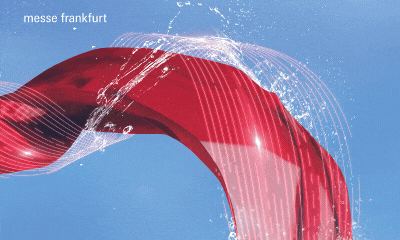 |
Serving up a better planet: Fairmont makes waves with new sustainable seafood pact
|
Catégorie : Monde - Économie du secteur
- Tendances, avis d'expert
Ceci est un communiqué de presse sélectionné par notre comité éditorial et publié gratuitement le vendredi 06 février 2009
- Brand Expands Its Sustainable Cuisine Commitment to Include Fish, Seafood -
As a pioneering voice on environmental stewardship within the hospitality industry, Fairmont Hotels & Resorts is proud to announce an extension of its brandwide Green Cuisine program to include sustainable seafood choices in support of a global effort to conserve precious marine species.
As the latest environmental initiative undertaken by the brand, Fairmont's hotels and resorts worldwide will remove threatened fish species like Chilean Sea Bass and Blue Fin Tuna from their restaurant menus and will also align themselves locally with reputable seafood watch organizations, ensuring guests continue to be provided with a comprehensive selection of sustainable seafood choices. By Spring 2009, Fairmont's seafood purchases will be made with the guidance and consultation of these well-respected groups and in consortium with local suppliers.
Put into practice, Fairmont's commitment to ocean sustainability means working with reputable suppliers who purchase fish that are resilient to fishing pressure and harvested in ways that limit damage to marine or aquatic habitats. Specifically, Fairmont has identified two seafood choices that are most at risk - and has eliminated them from its food service operations. They include:
* Chilean Sea Bass - also called Patagonia Tooth, this is a long-life fish, meaning it does not reproduce quickly. Due to worldwide popularity of this menu item, their numbers have been dwindling dramatically from illegal and aggressive fishing.
* Bluefish Tuna - heavily over-fished in international waters, the plight of this species is so serious that the World Conservation Union lists Southern Bluefish Tuna in its grouping of most threatened wildlife. Their numbers have declined by 97% over the last four decades.
In the face of these findings, Fairmont will no longer serve these two fish varieties on menus and will also make it easier for guests to make informed food choices by identifying responsible seafood choices on its restaurant menus. The end result: healthier practices flowing down to suppliers, who then offer better choices to restaurants. In addition, by promoting awareness and sustainable alternatives among its guests, Fairmont will play a role in influencing and shaping the tastes and preferences of guests who care about the future of the planet.
Already, a number of Fairmonts have taken up the sustainable seafood call. Mexico's Fairmont Mayakoba has partnered with local communities in a nearby biosphere to purchase lobster that is sustainably harvested. To date, the resort has purchased more than 4.8 tons of the lobster, which comes with a certificate affirming the lobsters have been locally sourced in a responsible fashion. On Hawaii's Big Island, The Fairmont Orchid goes to great lengths to purchase locally sourced seafood and actively participates in regional moratoriums on any threatened fish stocks. And in Vancouver, The Fairmont Waterfront and The Fairmont Vancouver Airport have joined the Vancouver Aquarium's Ocean Wise program, a conservation platform created to educate and empower consumers about the issues surrounding sustainable seafood. Ocean-friendly menu options at The Fairmont Waterfront's Herons Restaurant range from Top Seared Halibut to Pan Seared Sablefish.
Fairmont Hotels & Resorts' dedication to the protection of the environment goes well beyond helping conserve species that reside in the sea. On a wide-ranging basis, the luxury hotel brand maintains a comprehensive commitment to purchasing local, organic and sustainable food items whenever possible. But it's important to note that good environmental practices do not mean guests at Fairmont restaurants miss out on world-class cuisine. Instead, they feast on various fish caught or sourced in ways that ensure their continued survival.
For close to two decades, Fairmont has strived to minimize its impact on the planet through its award-winning Green Partnership program, a comprehensive platform focused on key areas such as waste reduction, energy management, water conservation, and innovative community outreach programs. In a sign of corporate leadership, the company also encourages others to follow in its footsteps and has developed the Green Partnership Guide, a how-to text that any company can obtain to create or grow their environmental programming.
|
|






